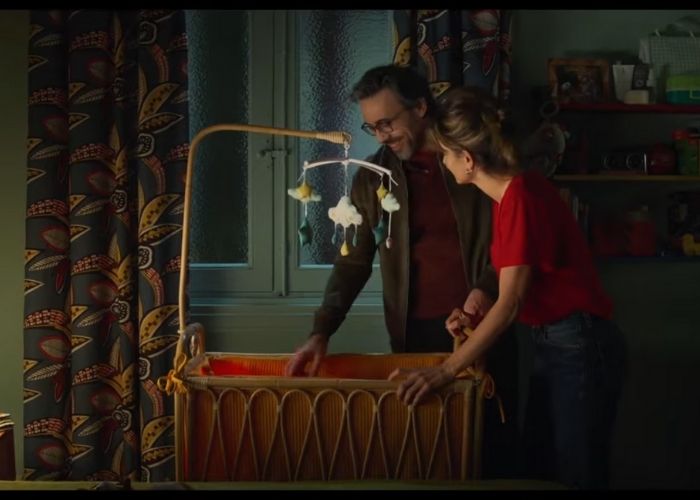Madre paralelas, the latest film by Spanish director Pedro Almodóvar, is well received not only in Spain but internationally. Now the film has even been nominated for the French César, a prestigious award that has been compared to the Oscar.
The French Film Academy announced the nomination on Wednesday. ‘Madres paralelas’ will compete for a César in the category ‘Best Foreign Film’. The competition is fierce, as Almodóvar has to compete against Finnish director Juho Kuosmanen (‘Compartment Number 6’); Japan’s Ryusuke Hamaguchi (“Drive my car”); the American Kelly Reichardt (“First Cow”); the Norwegian Joachim Trier (“The worst person in the world”); the Iranian Saeed Roustayi (“Just 6.5”) and the British Florian Zeller (“The Father”).
Most of the nominations for this year’s César edition are for the French drama film ‘Lost illusions’ by Xavier Giannoli. For this, there are no fewer than 15. These include the categories Best Film, Best Supporting Actress, Best Supporting Actor and Best Director.
Old acquaintance at French film festival
It is not the first time for Almodóvar that he competes for a César. In 1993 he already won this French prize for his ‘Tacones lejanos’. And in 2000 he won again with ‘Todo sobre mi madre’. Then, in 2003, his film ‘Hable con ella’ was awarded the title of ‘Best European Film’. He has also been nominated several times, in 1991 for his film ‘Átame’, and in 2007 for ‘Volver’. Also for his penultimate film in 2020, ‘Dolor y gloria’. Furthermore, in 2005, ‘La mala educación’ was nominated for the ‘Best European Film’ category.
This year’s French Film Gala will take place on February 25 in Paris and will be hosted by French actor and director Antoine de Caunes and Australian actress Cate Blanchett.
Penelope Cruz
Penelope Cruz has already won a Copa Volpi in the Best Actress category for her role in ‘Madres paralelas’. Cruz has also been nominated for the American Satellite Awards and the film has been nominated 8 times for the Goya awards, including in the categories Best Picture, Best Director and Best Actress.
Pedro Almodóvar is the only Spanish director to win two Oscars, for ‘Todo sobre mi madre’ (Best Foreign Language Film, in 1999) and for ‘Hable con ella’ (Best Original Screenplay, in 2002).
Transformation is a recurring theme
In an interview with the British newspaper The Guardian, Aldmodóvar talked about the recurring theme in his films: transformation. This is directly related to his native Spain and the transformation that the country has gone through since the 1970s. Even young in the 1980s, he became the most famous artist of the socio-cultural movement La Movida Madrileña. This movement celebrated social freedom after the end of years of dictatorship in Spain. Therefore, being able to be yourself was one of the most important themes in those years. Consequently, Almodóvar’s first films are based on it.
Political themes and social taboos were banned, now it was time to live and celebrate in the here and now. In order to start over, in a country with a brand new democracy and new constitution, Spain’s past seemed to have disappeared. Now Almodóvar thinks it is time to deal with this past, not to forget it, but on the contrary to reflect on the atrocities of the Civil War and the subsequent dictatorship.
A different Spain
He has incorporated this theme in ‘Madres Paralelas’: two pregnant women are going to give birth to their child in hospital at the same time. That is also their only similarity: Janis (Penelope Cruz) has passed forty, while the teenager Ana (Milena Smit) is having her first child. Both women come from a different Spain. Janis is convinced that outside her village lies a mass grave with Civil War victims, including her great-grandfather. She wants to do everything she can to ensure that the bodies are exhumed, a theme that is very topical in Spain.
For Almodóvar, the two women symbolise Spain then and Spain today. And at the same time also his own attitude towards Spain then and now: first wanting to forget what happened to celebrate the future, but now it is time to reflect on the atrocities that have affected so many people for so many years.


